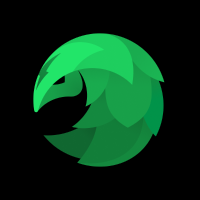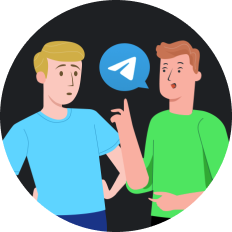How to Hide IP Address on iPhone: Ultimate Guide
Is protecting your online privacy just paranoia, or a fundamental right in today's digital landscape? In 2025, with data breaches hitting the headlines weekly and ISPs selling browsing histories to the highest bidder, hiding your iPhone's IP address isn't just for the tech-savvy anymore—it's becoming as essential as locking your front door.
The Great Privacy Debate
Some folks argue that if you're not doing anything wrong, you have nothing to hide. As the saying goes, "Only the guilty need alibis." These digital optimists believe that sharing data leads to better services and more personalized experiences.
On the flip side, privacy advocates maintain that surveillance—whether by governments, corporations, or hackers—fundamentally changes how we behave online. As Edward Snowden famously said, "Arguing that you don't care about privacy because you have nothing to hide is like saying you don't care about free speech because you have nothing to say."
Regardless of where you stand, knowing how to mask your iPhone's IP address gives you control over your digital footprint. Let's explore your options.
Why You Might Want to Hide Your IP Address
Your IP address is essentially your device's digital ID card, revealing:
- Your approximate geographic location
- Your Internet Service Provider
- A unique identifier that can track your online activities
This information can be used for:
- Targeted advertising and price discrimination
- Geographic content restrictions
- Monitoring by ISPs, websites, and potentially government agencies
- Potential targeting by hackers
Methods to Hide Your IP Address on iPhone
Method 1: Use Airplane Mode (The Quick Fix)
This method is about as effective as wearing sunglasses as a disguise—it works, but only temporarily:
- Swipe down from the top-right corner of your iPhone
- Tap the airplane icon
- Wait a few seconds, then disable airplane mode
Pros: Free, built-in, no downloads required
Cons: Only changes your IP temporarily, disconnects all communications
Method 2: Use Public Wi-Fi (The Risky Option)
Connecting to public Wi-Fi will change your IP address, but comes with significant security risks:
- Go to Settings > Wi-Fi
- Connect to a public network
Pros: Free, relatively easy
Cons: Extremely risky—public networks are prime hunting grounds for hackers
Method 3: Use a VPN (The Recommended Solution)
A Virtual Private Network (VPN) creates an encrypted tunnel between your device and a server, masking your IP address and encrypting your data.
- Subscribe to a reliable VPN like SafeShell VPN
- Download the app from the App Store
- Open the app and sign in
- Select a server location
- Tap the connect button
Pros: Comprehensive protection, reliable IP masking, additional security benefits
Cons: Premium services require subscription
Method 4: Use Tor Browser (The Nuclear Option)
For maximum anonymity at the cost of speed:
- Download the Onion Browser from the App Store
- Open the app and begin browsing
Pros: High level of anonymity
Cons: Significantly slower browsing speeds, some websites block Tor users
Why SafeShell VPN Stands Out for iPhone Users
While there are several VPNs on the market, SafeShell VPN offers specific advantages for iPhone users looking to hide their IP addresses:
Lightning-Fast Speeds
Unlike many VPNs that slow your connection to a crawl, SafeShell VPN utilizes optimized servers that maintain ultra-fast speeds—essential for streaming, gaming, or just everyday browsing on your iPhone. Their proprietary technology minimizes the speed loss typically associated with VPN usage, making it feel like you're not using a VPN at all.
User-Friendly iPhone App
The SafeShell VPN app for iOS is designed with Apple's philosophy in mind—it just works. With a clean interface and one-tap connection, it's perfect for VPN newcomers and power users alike.
Exclusive App Mode Feature
SafeShell's unique App Mode allows you to route only specific apps through the VPN while letting others use your regular connection—perfect for when you want to stream content from another region while keeping local apps running normally.
Robust Security Features
With SafeShell's proprietary "ShellGuard" protocol, your data remains secure even on public Wi-Fi networks. The app also includes:
- Kill switch to prevent data leaks
- DNS leak protection
- Military-grade encryption
Streaming and Content Access
If you're looking to access geo-restricted content on your iPhone, SafeShell VPN consistently unblocks major streaming platforms including Netflix, Disney+, and sports streaming services—perfect for catching that blacked-out game or accessing your home content while traveling.
How to Set Up SafeShell VPN on Your iPhone
- Visit the App Store and search for "SafeShell VPN"
- Download and install the app
- Create an account or sign in
- Choose your preferred server location (or let the app recommend the fastest)
- Tap the connect button
- Verify your IP has changed by visiting an IP checker website
Once connected, your iPhone's real IP address is hidden, and your internet traffic is encrypted and routed through SafeShell's secure servers.
Tips for Maximum Privacy on iPhone
For the privacy-conscious iPhone user, consider these additional steps:
- Use Safari's Privacy Report feature
- Enable "Limit IP Address Tracking" in iOS settings
- Turn off Location Services for apps that don't need it
- Use private browsing mode
- Regularly clear cookies and browsing history
Frequently Asked Questions
Is it legal to hide my IP address on my iPhone?
Yes , using a VPN to mask your IP address is legal in most countries, including the United States. However, what you do while your IP is hidden must still comply with laws and terms of service.
Will hiding my IP address affect my internet speed?
It depends on the method . Using a premium VPN like SafeShell typically has minimal impact on speed thanks to optimized servers, while free options or Tor will significantly slow your connection.
Can websites still track me if I hide my IP address?
Partially . While they won't see your real IP, websites can still use cookies, browser fingerprinting, and account logins to track you. For complete anonymity, additional privacy measures are needed.
Do I need to hide my IP address all the time?
Not necessarily . Many users only activate their VPN when using public Wi-Fi, accessing sensitive information, or streaming geo-restricted content. It's all about your personal privacy comfort level.
How does SafeShell VPN compare to Apple's Private Relay?
They serve different purposes . Private Relay only works in Safari and doesn't let you choose your location, while SafeShell VPN works across all apps and allows you to select from servers worldwide.
Will hiding my IP affect my banking apps?
It might . Some financial institutions flag VPN connections as suspicious. SafeShell's App Mode lets you exclude banking apps from the VPN connection for hassle-free access.
Whether you're concerned about privacy, looking to access geo-restricted content, or just don't want your ISP selling your browsing data, hiding your IP address on your iPhone is a smart move in 2025's digital landscape. As they say in Texas, "Good fences make good neighbors"—and in the online world, a hidden IP address is your digital fence.


